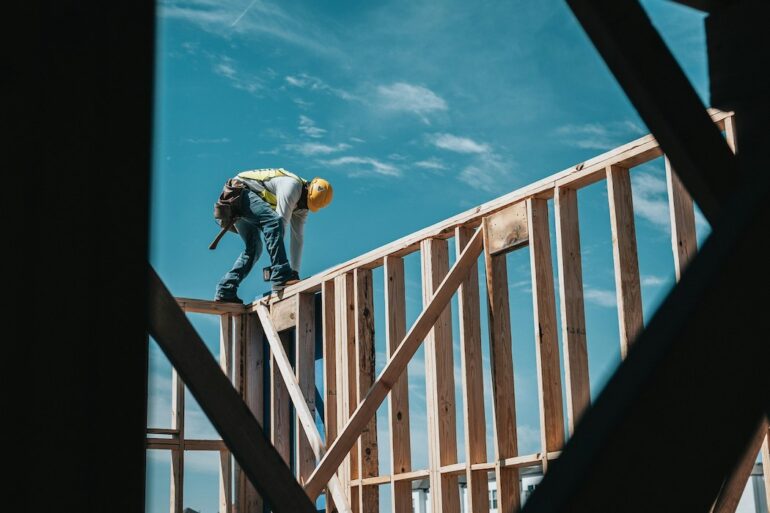Two initiatives in Ontario have launched today to support innovation in the proptech, real estate, and construction tech sectors.
“Our council is calling upon all stakeholders to shift away from conventional thinking and commit to innovation.”
George Carras, R-LABS founder and CEO
As part of an innovation agenda outlining steps the organization feels are needed to address challenges in Canada’s real estate sector, Toronto-based venture builder R-LABS has pledged to invest $1 million into early-stage startups working to solve some of these challenges.
Coinciding with the agenda released today, the Ontario Centre of Innovation (OCI) has also launched a construction-focused challenge that aims to speed up the building of homes in Ontario with innovative technologies and automation.
The 2024 Industry Innovation Agenda (IIA) was created by the Industry Innovation and Transformation Council, a group convened by R-LABS that includes leaders across Canada’s real estate industry. The IIA identified housing affordability, supply, and climate resiliency among the top challenges facing the industry.
“The sector must work together in new ways, and with government partners, embrace new thinking and take action through open innovation and new entrepreneurial business models to tackle complex and interconnected problems,” George Carras, founder and CEO of R-LABS, said in a statement. “Our council is calling upon all stakeholders to shift away from conventional thinking and commit to innovation.”
As part of the release of the IIA, R-LABS has also put out a call for pledges that encourages industry, government, and nonprofits to pledge money and engage in small-scale experimentation that “can scale and share the outcomes of their innovations.”
RELATED: Proptech startup Landerz plots a course for growth with $1.5-million CAD seed round
Alongside R-LABS’ $1-million pledge, other commitments come from Oxford Properties, the Canada Mortgage and Housing Corporation (CMHC), Canada Green Building Council, Infrastructure Ontario, and Co-operators.
The OCI’s construction tech challenge, also launched March 26, will make up to $1 million in funding available for solutions that help the province meet its goal of building at least 1.5 million homes by 2031. Eligible solutions could include automated manufacturing of prefab housing, or improvements to onsite tools.
The challenge is part of the OCI’s Critical Industrial Technologies Initiative, which aims to integrate critical technologies, including 5G, AI, blockchain, robotics, cybersecurity, and quantum to key sectors, including construction, mining, agrifood, and advanced manufacturing.
“This initiative serves as a call to action to catalyze collaborative efforts and promote the development and integration of critical technologies in the construction sector, addressing the urgent housing needs of the province,” Claudia Krywiak, CEO and president of OCI, said in a statement.
RELATED: Ontraccr secures $1.2 million for construction management software
Over the last few years, Canada has faced significant housing challenges which have made homeownership increasingly unattainable for many Canadians. The CMHC predicts that Canada needs to build an additional 3.5 million more homes between 2022 and 2030 to restore affordability to the Canadian housing market, which the IIA says will require a “war-time-like mobilization effort.”
The IIA recommends five key steps to solve some of these challenges: fostering a culture that embraces risk-taking; enhancing housing affordability and increasing supply; ensuring real estate is climate resilient while promoting low-carbon solutions; maximizing the efficiency of Canada’s existing buildings; and providing improved support for capital, labour, and infrastructure.
Canada is also home to a budding proptech and construction tech sector, with many startups looking to address some of these challenges. The IIA notes that technology adoption will be key to improving real estate innovation, but stressed that firms introducing these technologies will need funding, research support, early customers, and a more receptive market to scale their ideas.
“The status quo is no longer an option—we must find new and better ways of doing things if we are going to improve Canadian real estate and address the grand challenges that lay ahead,” the report states.
Feature image courtesy Unsplash. Photo by Josh Olalde.


